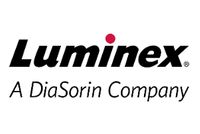Sessions and Webinars Share
Please click on the On demand below to see a listing of our two-day conference agenda currently available for ondemand viewing in the Auditorium.
Click on the dates to view upcoming Educational Webinars.
-
SEP 16, 2020 12:15 PM EDT
Session I - Assay Development & High Content Screening Case Histories
Session Chair: Juliana Conkright-FinchamStowers Institute for Medical ResearchSession Chair: Taosheng ChenSt. Jude Children's Research Hospital -
SEP 16, 2020 11:00 AM EDT
Keynote Presentation: Putting Machine Learning Models into Large Scale Production for Drug Discovery
Lina Nilsson, PhD
Vice President of Product, Overseeing Data Science, Engineering and Innovation Biology Initiatives at RecursionBIOGRAPHY -
SEP 16, 2020 12:15 PM EDT
High-resolution HCA-based phenotypic profiling of tumor spheroids and organoids
Meritxell B. Cutrona, PhD
High Throughput Bioscience Center, St. Jude Children's Research HospitalBIOGRAPHY -
SEP 16, 2020 12:45 PM EDT
GFP Complementation Screening of the Yeast Inner Nuclear Membrane Proteome
-
SEP 16, 2020 1:30 PM EDT
Session II - High Content Imaging Innovations
Session Chair: David AndrewsSunnybrook Research InstituteSession Chair: Jeffrey MoffittBoston Children's Hospital -
SEP 16, 2020 1:30 PM EDT
Multiplexed Imaging to Understand the High-Dimensional Pathology of Human Cancer
-
-
SEP 17, 2020 11:00 AM EDT
Keynote Presentation: Adding Dimensions to Intravital Imaging
Scott Fraser, PhD
Professor of Biology, Bioengineering, & Convergent Biosciences University of Southern CaliforniaBIOGRAPHY -
SEP 17, 2020 12:15 PM EDT
Session III - High Content Imaging Applications to Tissue Engineering
Session Chair: Shilpa SantUniversity of Pittsburgh School of PharmacySession Chair: Kyle P. QuinnUniversity of Arkansas -
SEP 17, 2020 12:15 PM EDT
Metabolic imaging of cellular heterogeneity in patient-derived cancer organoids
-
SEP 17, 2020 12:45 PM EDT
Stimuli-responsive Nanomaterials for Imaging Immunotherapy Response
Ashish Kulkarni, PhD
Institute for Applied Life Sciences, University of Massachusetts AmherstBIOGRAPHY -
SEP 17, 2020 1:30 PM EDT
Session IV - Maximizing the Value of your Imaging Data
Session Chair: David Van ValenCaltechSession Chair: Khuloud JaqamanUT Southwestern Medical Center -
-
SEP 17, 2020 2:00 PM EDT
MAPK Activity Dynamics Regulate Non-Cell Autonomous Effects of Oncogene Expression
-
FEB 03, 2021 12:30 PM EST
Optimizing High-Content Imaging of 3D Models for Drug Discovery
Arvonn TullySenior Software Application Specialist, Yokogawa Life I...Judi Wardwell-SwansonSenior Application Scientist, InSphero AG -
DEC 09, 2020 11:00 AM EST
Introduction to Image Processing for High-Content Screening
-
NOV 18, 2020 11:00 AM EST
Basic Concepts in Imaging-based High-Throughput Screening and High-Throughput Profiling Assay Development
-
-
OCT 26, 2020 11:00 AM EDT
Introduction to FLIM-FRET techniques
-
OCT 22, 2020 11:00 AM EDT
Impact of Segmentation Quality on Assay Endpoints - Deep Learning for High Content Screening
7th Annual Conference: SBI2 High Content
Our Mission Statement: The Society of Biomolecular Imaging and Informatics (SBI2) is an international community of leaders, scientists, and students promoting technological advancement, discovery, and education to quantitatively interrogate biological models to provide high context information at the cellular level.
We are pleased to announce the 7th Annual High Content conference brought to you by The Society of Biomolecular Imaging and Informatics (SBI2) on September 16 and 17, 2020. This is our first Virtual Conference and we hope you will join us for a meeting that prioritizes interpersonal communications, high quality scientific presentations, and educational experiences that foster overall awareness of “up to date” techniques and the rapidly expanding strategies in imaging and informatics. This virtual meeting holds the most promise to bring to you all the outstanding features our members have come to expect from SBI2.
Registration and Poster Submissions are free this year.
This scientific event will feature 2 keynote speakers:
Lina Nilsson, Ph.D. - Senior Director of Data Science Product, Recursion Pharmaceuticals
and
Scott Fraser, Ph.D. - Professor of Biology, Bioengineering, & Convergent Biosciences University of Southern California.
Join our High Content 2020 Conference to:
- View Scheduled Scientific Sessions with live Q&A
- Scientific Session 1: Assay Development and High Content Screening Case Histories
- Scientific Session 2: High Content Imaging Applications to Tissue Engineering
- Scientific Session 3: High Content Imaging Innovations
- Scientific Session 4: Maximizing the Value of your Imaging Data
- Scientific Poster Session – see the Posters Tab for more information
- Deadline for poster abstract submission is August 7th, 2020
- Limited to 100 posters
- Visit the Exhibit Hall to meet with your favorite companies and learn the latest on their products and services
- Afternoon Roundtables – Live Zoom meetings for networking and sharing ideas on pre-selected scientific topics with peers from around the world.
- Zoom meetings limited to 500 participants per session
- Scientific Colloquium – Artificial Intelligence for Imaging Applications
- The High Content 2020 conference including presentations, posters and exhibitor booths will be accessible for 1 year
- Educational Webinars will be presented October-December within the conference environment
Speakers Share
-
Lina Nilsson, PhD
Vice President of Product, Overseeing Data Science, Engineering and Innovation Biology Initiatives at Recursion
BIOGRAPHY
-
Scott Fraser, PhD
Professor of Biology, Bioengineering, & Convergent Biosciences University of Southern California
BIOGRAPHY
-
Session Chair: Juliana Conkright-Fincham
Stowers Institute for Medical Research
-
Session Chair: Taosheng Chen
St. Jude Children's Research Hospital
-
Session Chair: Shilpa Sant
University of Pittsburgh School of Pharmacy
-
Session Chair: Kyle P. Quinn
University of Arkansas
-
Session Chair: David Van Valen
Caltech
-
Session Chair: Khuloud Jaqaman
UT Southwestern Medical Center
-
David Andrews, PhD
Director Biological Sciences, Sunnybrook Research Institute
BIOGRAPHY
-
Mark-Anthony Bray, PhD
Data Scientist, Novartis Institutes for BioMedical Research
BIOGRAPHY
-
Meritxell B. Cutrona, PhD
High Throughput Bioscience Center, St. Jude Children's Research Hospital
BIOGRAPHY
-
David Egan, PhD
CEO & Cofounder, Core Life Analytics
BIOGRAPHY
-
Joshua Harrill, PhD
Toxicologist, United States Environmental Protection Agency
BIOGRAPHY
-
Ashish Kulkarni, PhD
Institute for Applied Life Sciences, University of Massachusetts Amherst
BIOGRAPHY
-
Fuhui Long, PhD
Staff Analytics Engineer, Cytiva
BIOGRAPHY
-
Jeffrey Moffitt, PhD
Boston Children's Hospital
BIOGRAPHY
-
Susanne Rafelski, PhD
Cell Science at Allen Institute
BIOGRAPHY
-
Sergi Regot, MS, PhD
Johns Hopkins School of Medicine
BIOGRAPHY
-
Sandro Santagata, MD, PhD
Brigham and Women's Hospital
BIOGRAPHY
-
Melissa C. Skala, PhD
Morgridge Institute for Research, Madison WI
BIOGRAPHY
-
Arvonn Tully
Senior Software Application Specialist, Yokogawa Life Innovations
BIOGRAPHY
-
Jay Unruh, PhD
Stowers Institute for Medical Research
BIOGRAPHY
-
Judi Wardwell-Swanson
Senior Application Scientist, InSphero AG
BIOGRAPHY
-
Thermo Fisher Scientific
Thermo Fisher Scientific is the world leader in serving science, our mission is to enable our customers to make the world healthier, cleaner and safer. High-content screening/analysis (HCS) was invented by and registered as a trademark of Cellomics, which is now part of Thermo ...
See more -
PerkinElmer
PerkinElmer is working closely with laboratories around the world to deliver the nucleic acid isolation, automation, real-time PCR, antibody testing, and NGS library preparation solutions they need to rapidly respond to the SARS-CoV-2 challenges both today and tomorrow. To ...
See more -
Luminex - A DiaSorin Company
At Luminex, our mission is to empower labs to obtain reliable, timely, and actionable answers, ultimately advancing health. We offer a wide range of solutions applicable in diverse markets including clinical diagnostics, pharmaceutical drug discovery, biomedical research, genomic ...
See more -
MilliporeSigma
Our purpose is to solve the toughest problems in life science by collaborating with the global scientific community - and through that, we aim to accelerate access to better health for people everywhere.
-
Molecular Devices
From our scientists and engineers to our service and support teams, we're passionate about equipping researchers with next-generation technology that advances scientific discovery. Our customers are at the heart of all we do, inspiring innovative solutions that unravel the ...
See more -
ExpressCells
ExpressCells leverages proprietary gene-editing tools and the power of CRISPR to create custom, knock-in cell lines for drug discovery, toxicology, and other biologic research.
-
Genedata
Genedata combines computational, scientific, and technical expertise with extensive biopharma R&D domain knowledge to deliver user-friendly solutions that are scalable, open, and aligned with industry processes.
-
BioStatus
BioStatus invents, develops and manufactures novel reagents for cell-based imaging, cytometry and screening applications. The company manufactures all products in the UK and supplies customers and distributors worldwide. BioStatus operates to the ISO 9001:2015 quality standard.
-
Corelife Analytics
Core Life Analytics empowers life scientists by giving them access to powerful yet easy to use web-based data analytics tools, that allow them to, rapidly and independently, mine their high content and high throughput data. Our products help them to leverage the power of cloud ...
See more -
Chroma
Chroma Technology Corp. manufactures optical interference filters for a wide range of imaging and detection applications. We are proud to be 100% employee-owned and an active and caring member of the communities we serve and in which we live.
-
SLAS
At SLAS, we provide a wide array of relevant education, information, innovation and access to the world's largest network of professionals focused on leveraging technology for scientific advancement.
























































































